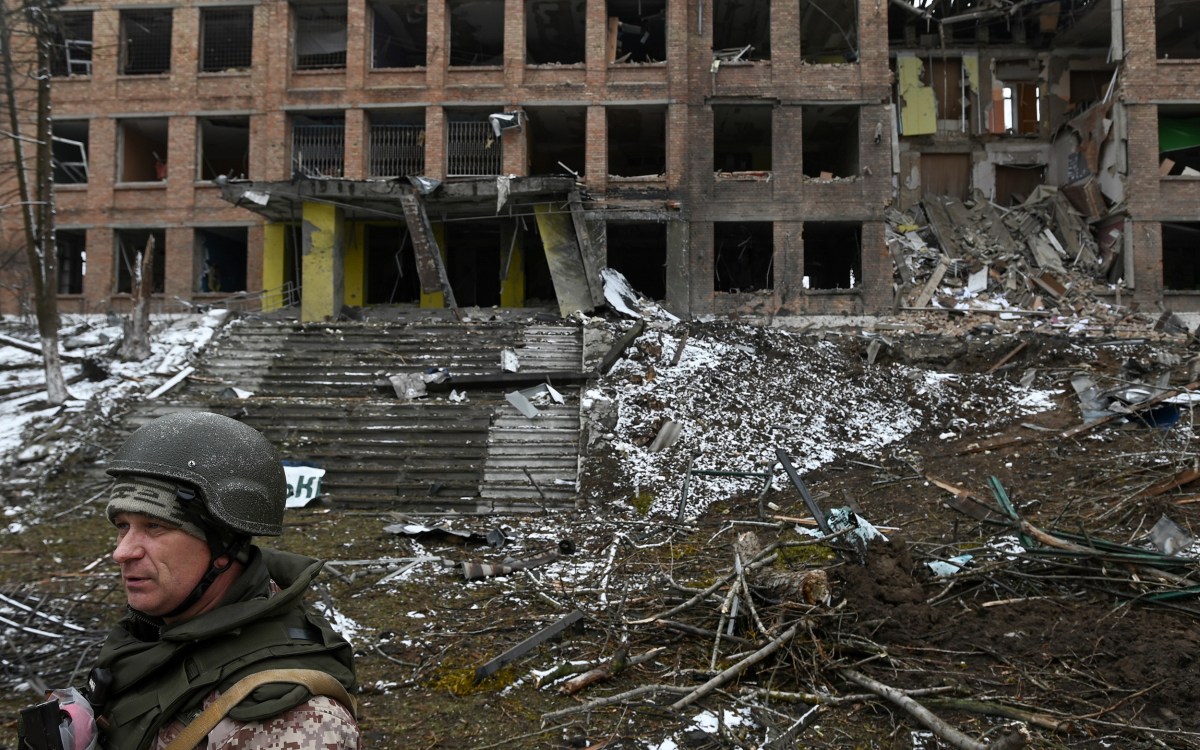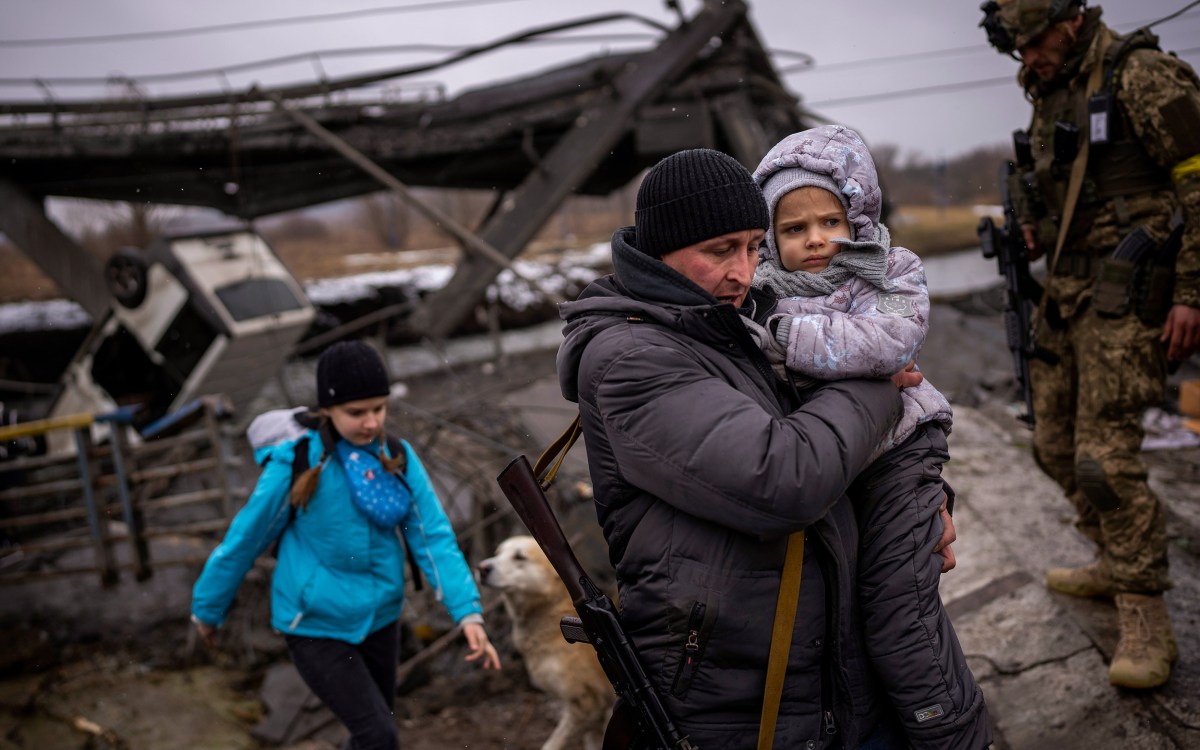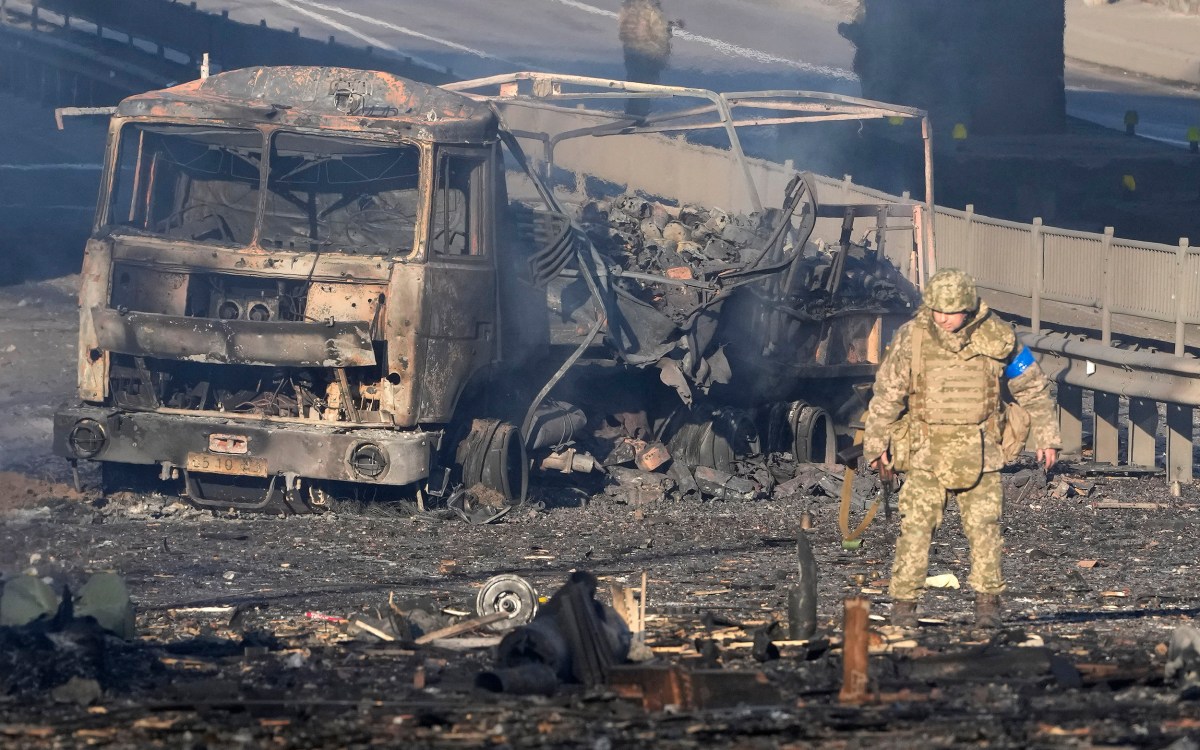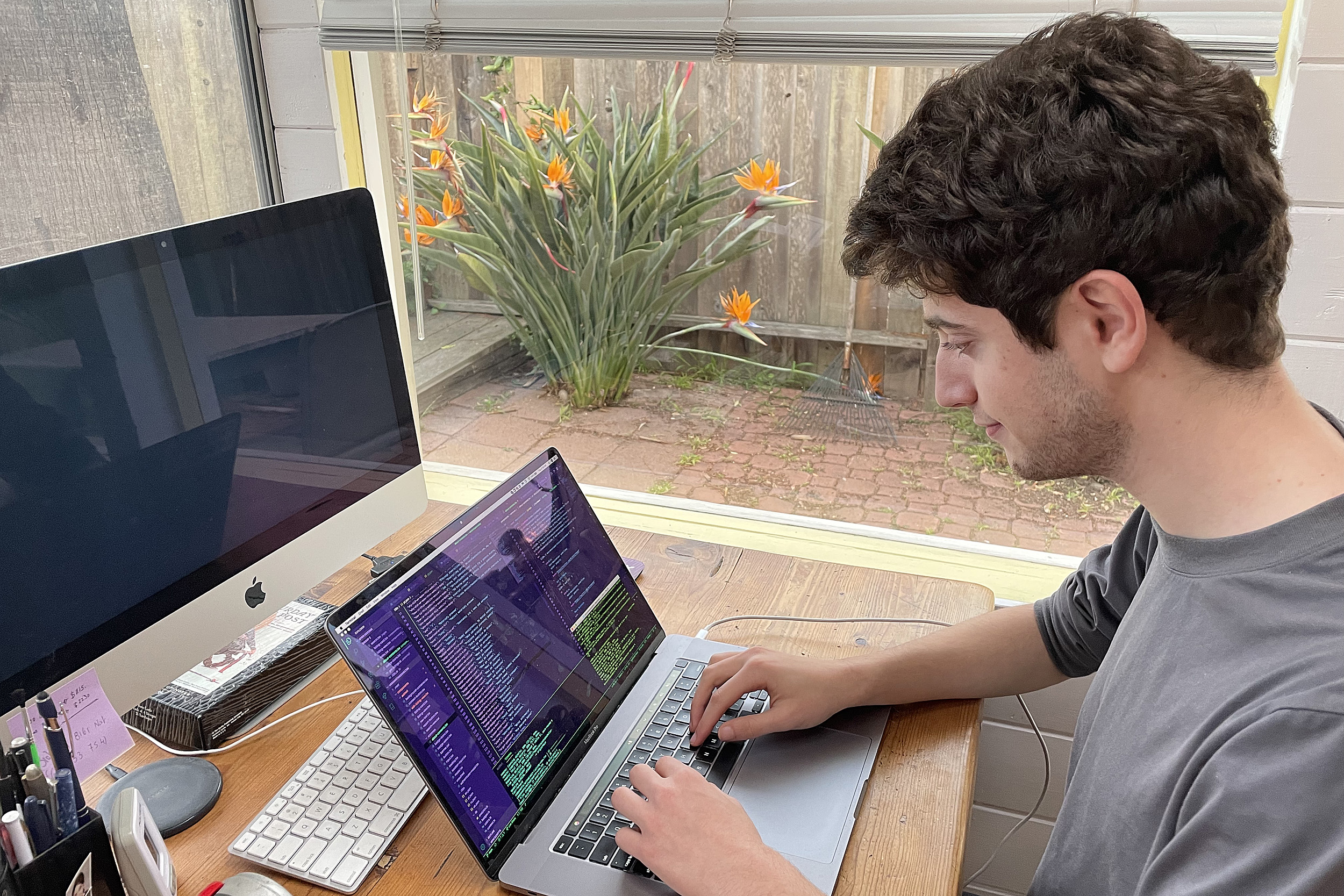
Avi Schiffmann works on the website UkraineTakeShelter, created with fellow Harvard student Marco Burstein. The website helps Ukrainian refugees connect with host families.
Photo courtesy of Avi Schiffmann and Marco Burstein
Finding ways to help Ukraine
Grad student, first-years gather humanitarian aid, create website to pair foreign hosts, fleeing war refugees
People around the world are scrambling to help Ukrainians affected by the Russian invasion, including the more than 3.5 million refugees who have fled to neighboring countries and elsewhere to escape the escalating bloodshed. Harvard students rallied to show their solidarity for Ukrainians in the days just after the attack began and have since found ways to provide aid and support. Here are the stories of three of them — GSAS student Anna Bisikalo and first-years Avi Schiffmann ’25 and Marco Burstein ’25.
Collecting humanitarian aid
Bisikalo, a Ukrainian American doctoral student, has family in the western part of the besieged nation who are in “relative safety” despite increasing missile attacks. Two of her cousins and an aunt escaped to Berlin, but her uncle had to stay behind after Ukraine banned men ages 18 to 60 from leaving the country.
Looking for ways to help Bisikalo, 27, decided to join her parents in sending humanitarian aid, such as food, clothing, baby goods, and pet supplies, and she launched a donation drive at Harvard, thinking there might be others who would like to lend a hand.
“The response has been very heartening,” said Bisikalo, who studies Ukrainian and Eastern European history. “I received a lot of donations on campus, as well as from some friends, acquaintances, even complete strangers, who saw the [Instagram post and department email] and dropped things off at my apartment in Cambridge.”
Anna Bisikalo lead a collection of supplies, clothes, dry goods, diapers, and pet food that will be shipped to Ukraine inside Robinson Hall.
Kris Snibbe/Harvard Staff Photographer
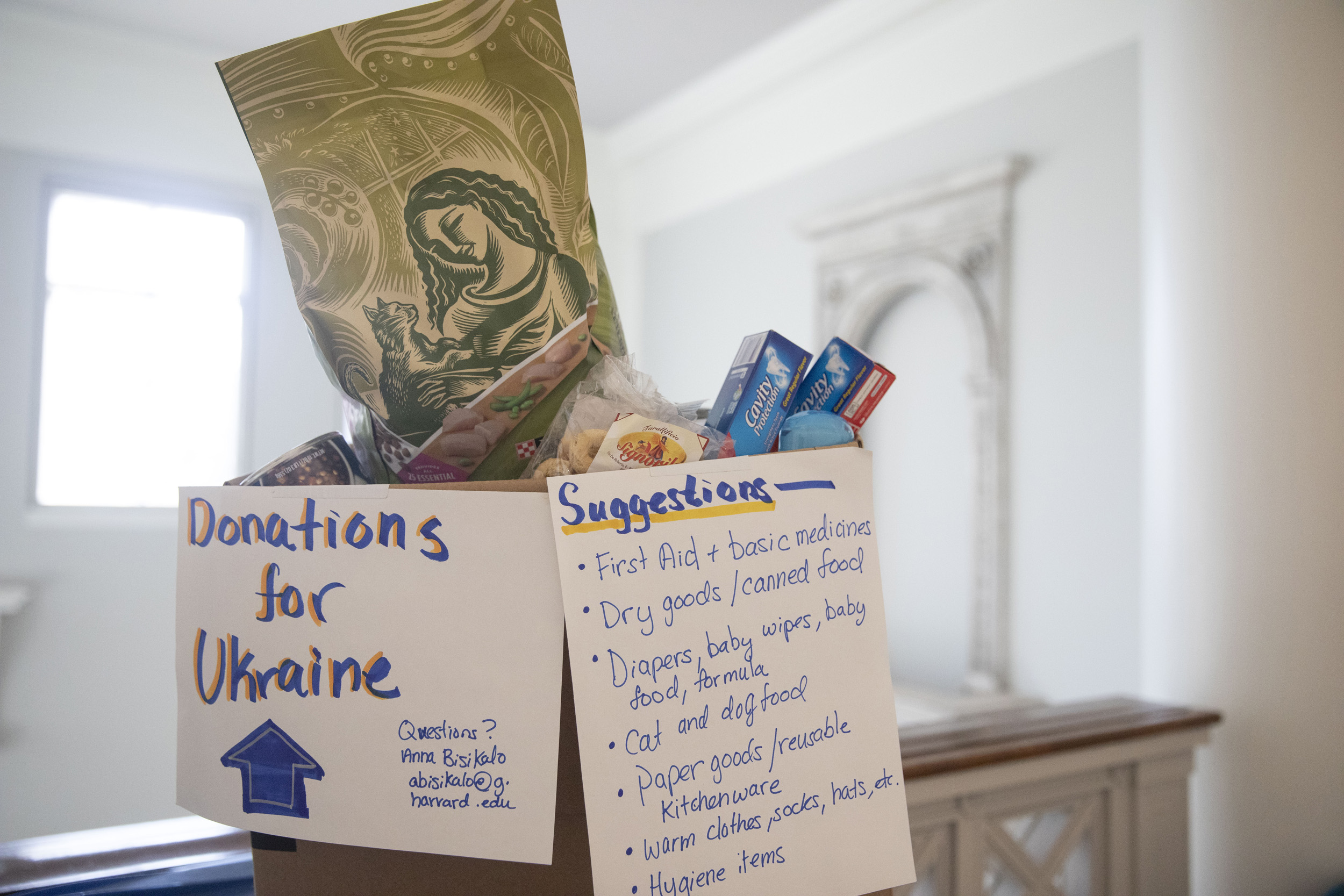
Bisikalo said that she is passing the donations along to aid organizations on the Ukrainian border that are driving the aid into the hardest-hit areas still accessible to outsiders.
“This has been a very challenging few weeks,” she said. “But I am very thankful to have such a supportive department and on campus community. Without that, it would be even more challenging.”
During spring break, Bisikalo paused collection but she hopes everyone will keep themselves abreast of the evolving conflict.
“Even though it’s not the same as direct financial and material support, it’s important to me personally that people keep themselves informed about what’s going on and not turn away,” she said.
Helping refugees find shelter
Neither Schiffmann nor Burstein had a personal connection to Ukraine, but the two first-years decided they simply wanted to help. So the tech-savvy friends joined forces to create a platform to make it easier for Ukrainian refugees to find shelter as they escape the danger at home.
The idea for UkraineTakeShelter came to Schiffmann, who had taken the spring semester off, after attending a San Diego protest in solidarity with Ukrainians. The 19-year-old went to bed that night thinking about how he could help, and the idea came to him: help refugees find places to stay. He had learned that many were desperately reaching out to Facebook groups or struggling with overly complicated government and NGO websites.
“I tried to think about how I could develop a website that really puts the power back into the hands of the refugees,” said Schiffmann, who as a 17-year-old had developed a website to help track the spread of the coronavirus globally. That’s when he reached out to 18-year-old Burstein, a web developer and computer science concentrator. The two worked tirelessly for three days straight to launch their website, which provides refugees with listings of potential hosts.
Avi Schiffmann (left) and Marco Burstein.
Photo courtesy of Avi Schiffmann and Marco Burstein
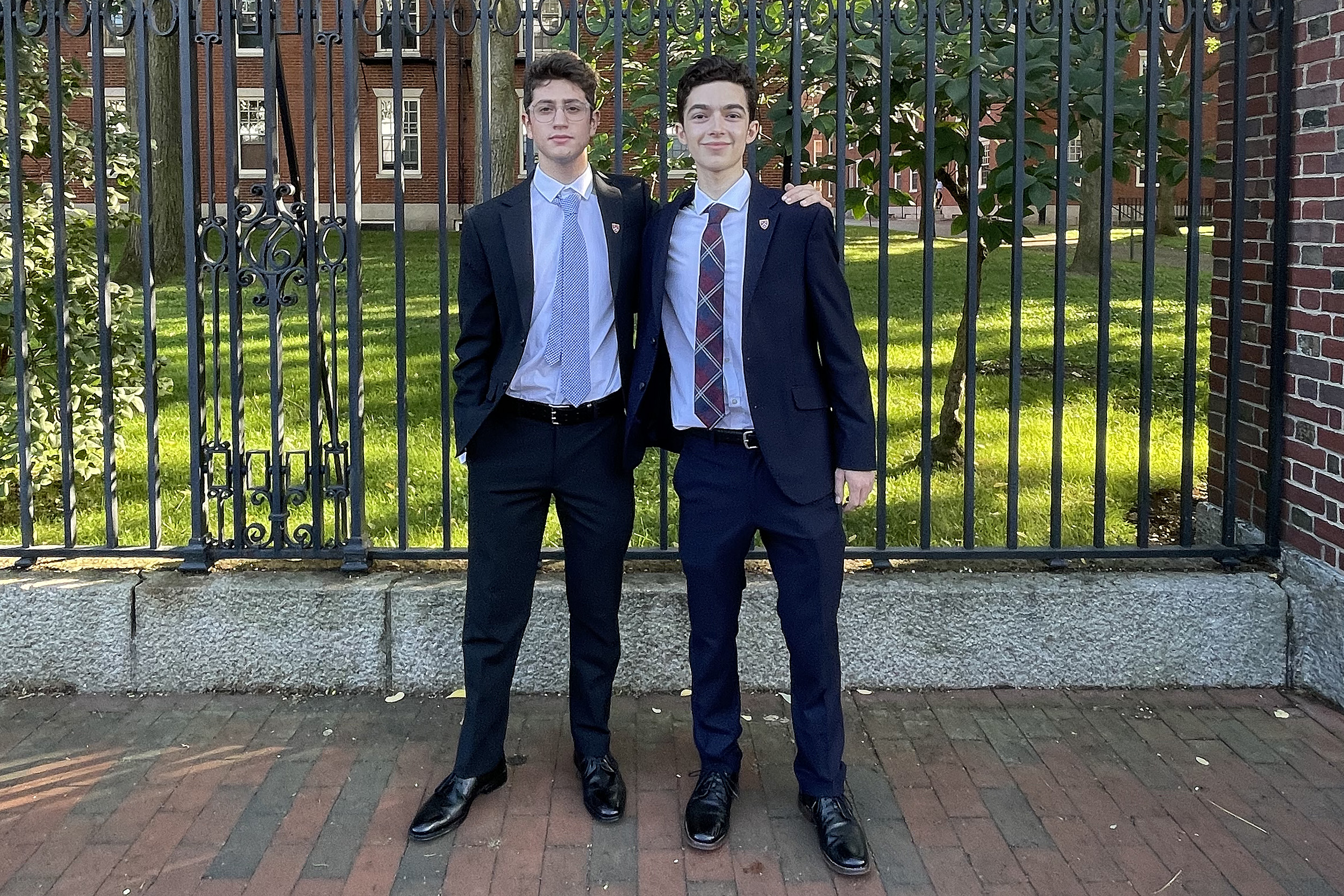
As of March 19, the pair said the website had nearly 25,000 listings from hosts in several countries. UkraineTakeShelter has been translated into more than a dozen languages, and Schiffmann and Burstein continue to improve the site with the help of user-experience testers, translators, and cybersecurity experts.
“We’ve been really blown away and really grateful for all of the support and all the help we’ve gotten to get it to this point,” Burstein said. “I think it’s a testament to the power of the internet that we’re able to not just learn about and sympathize with things that are happening on the other side of the world, but also take action and try to help in those situations.”
The two are now working with relief groups around Europe to list verified hosts on the platform. They also plan to create a resource page with information on things like transportation, food, clothing, and other supplies, Schiffmann said.
“We hope to continue to address the Ukrainian crisis as long as possible, and we’ll see how things go,” he said. “We realize there are a lot of other refugees around the world, such as coming from Syria and Afghanistan. It would be great to retrofit the website to be more of a general refugee service for housing.”



